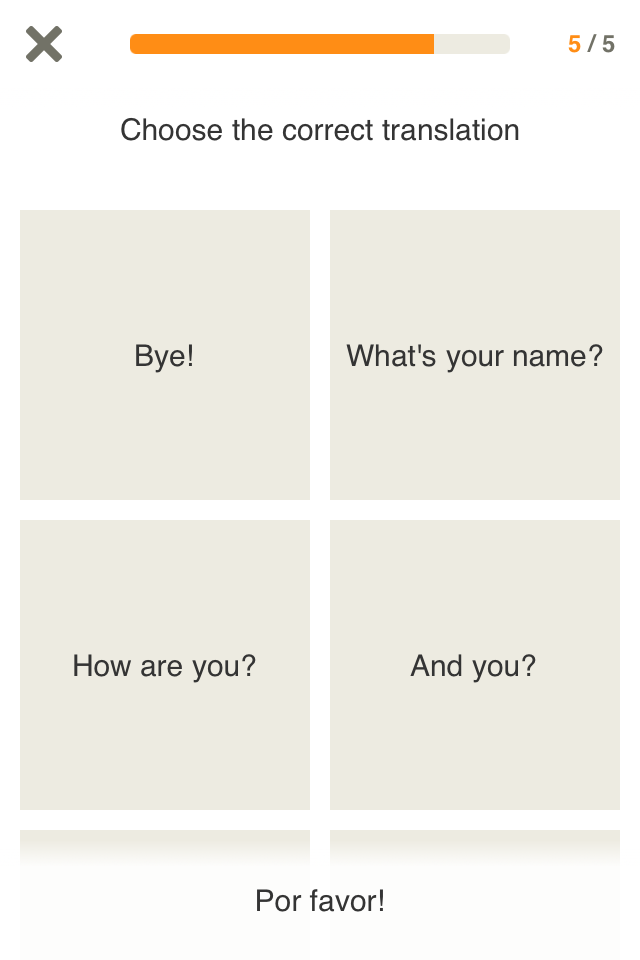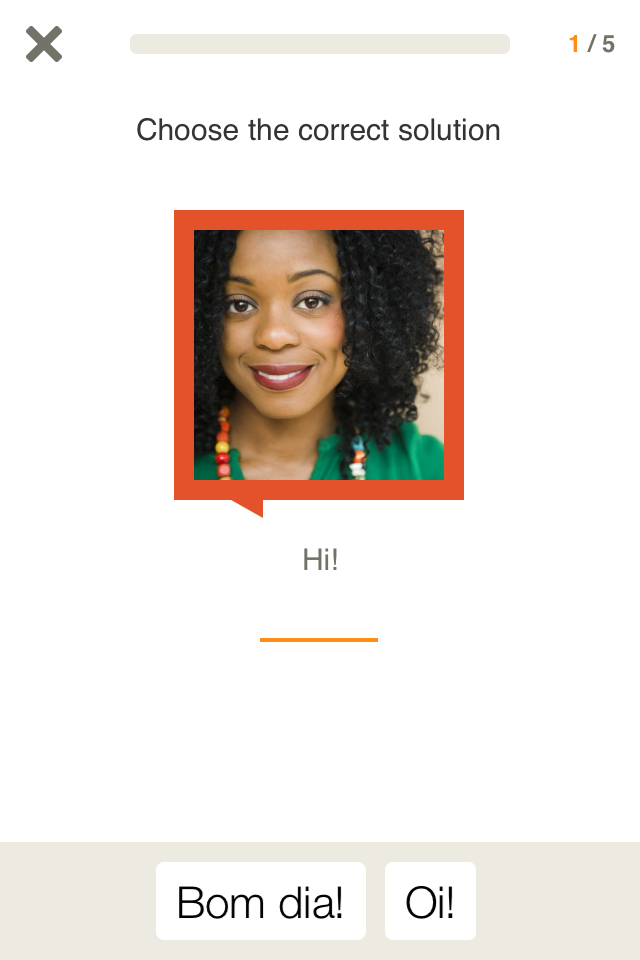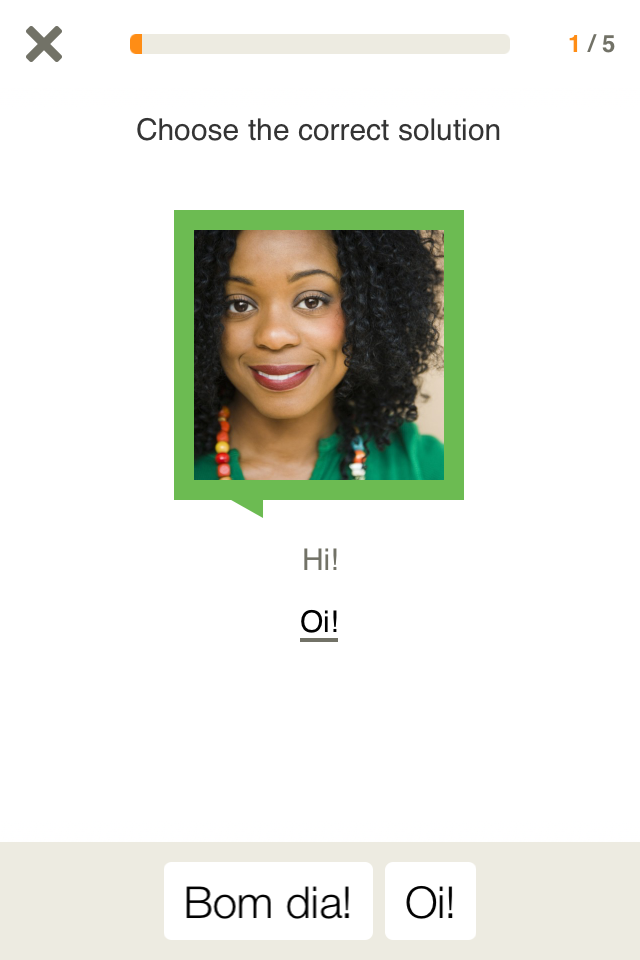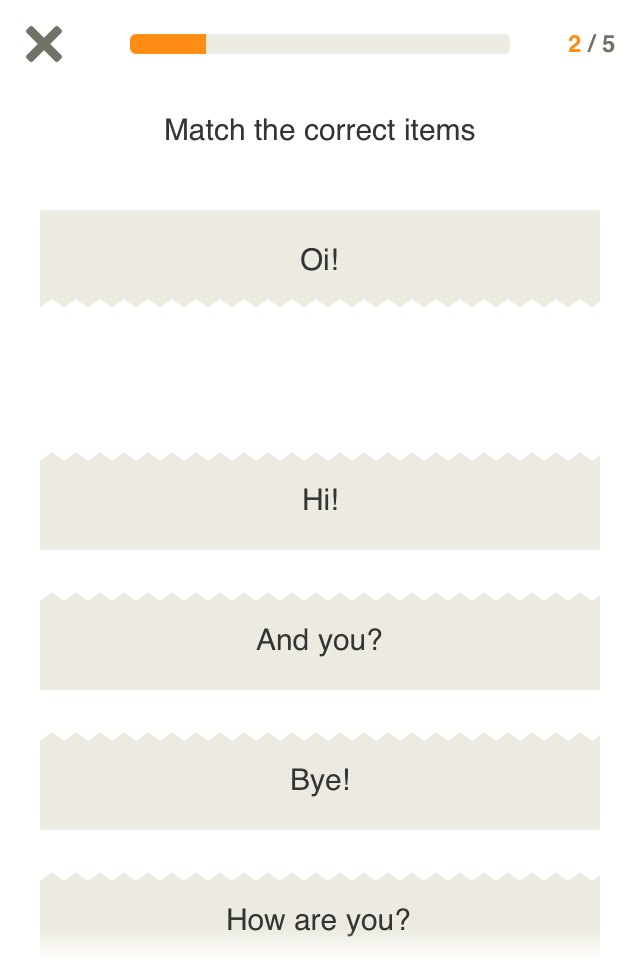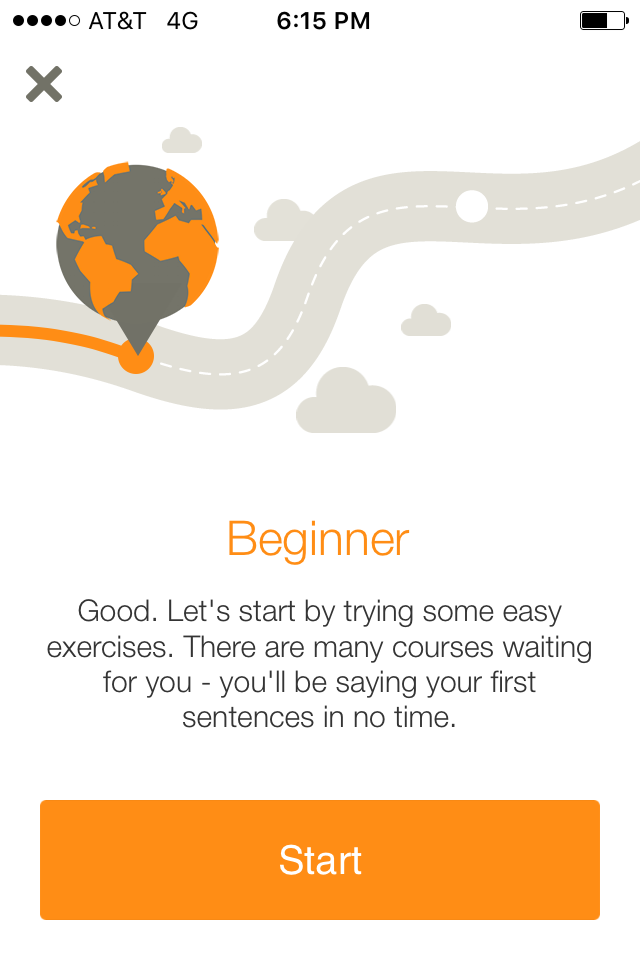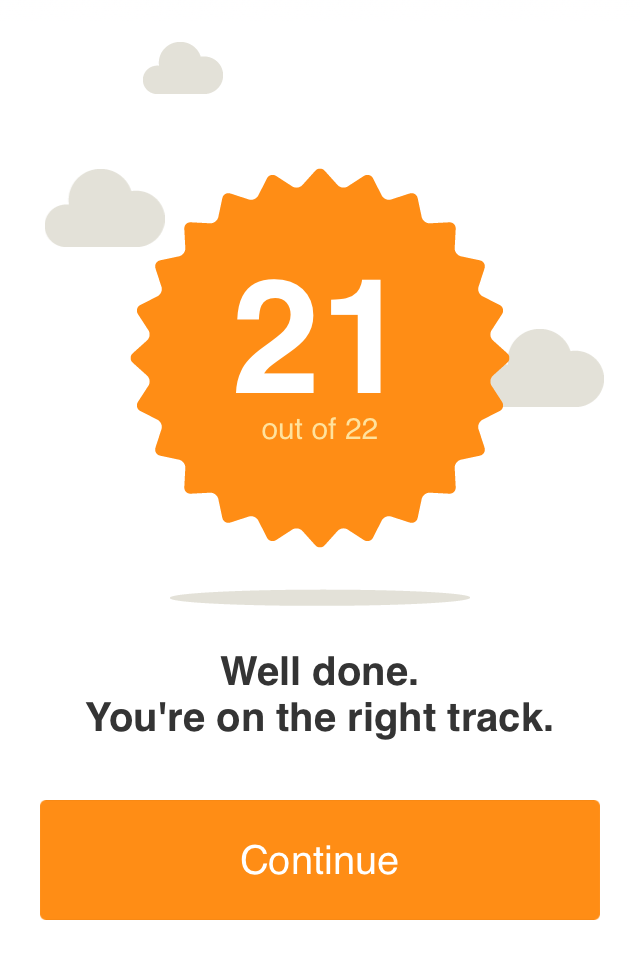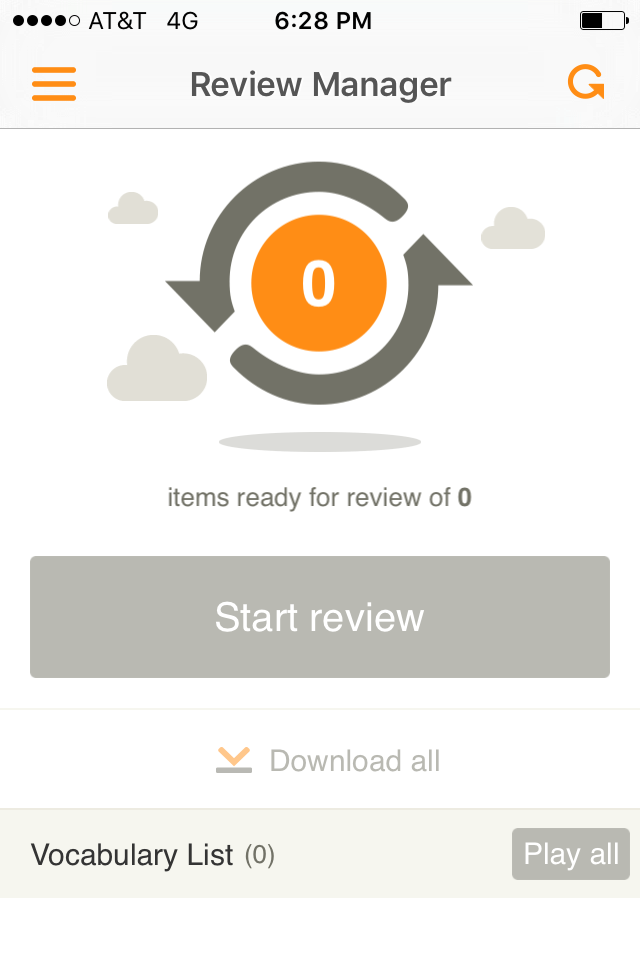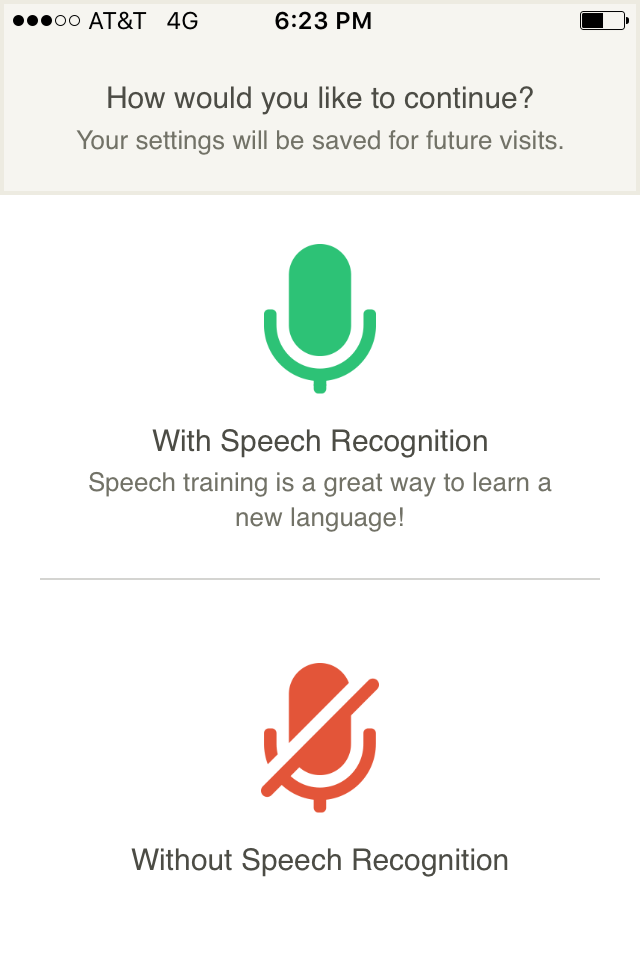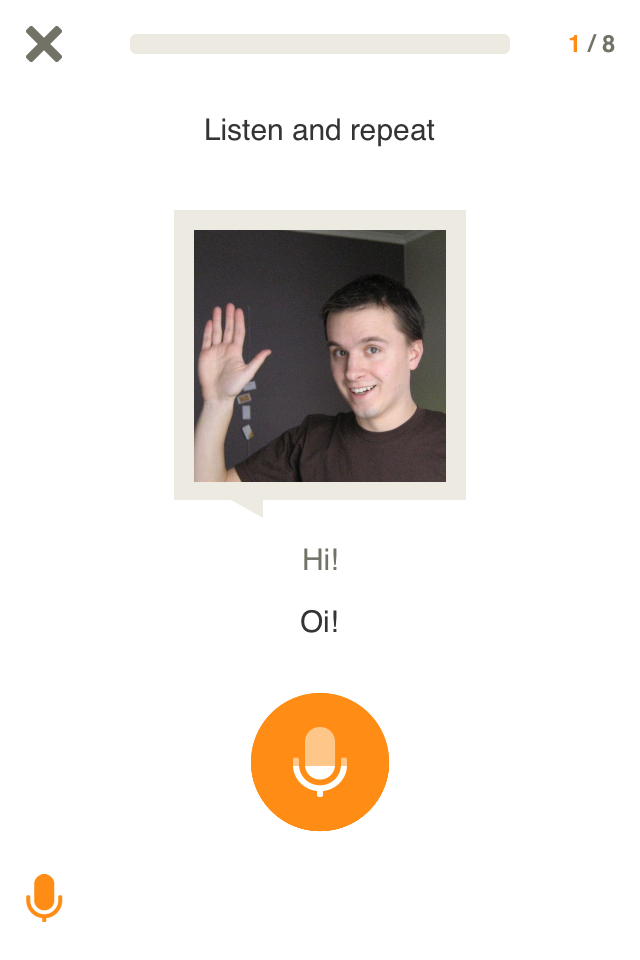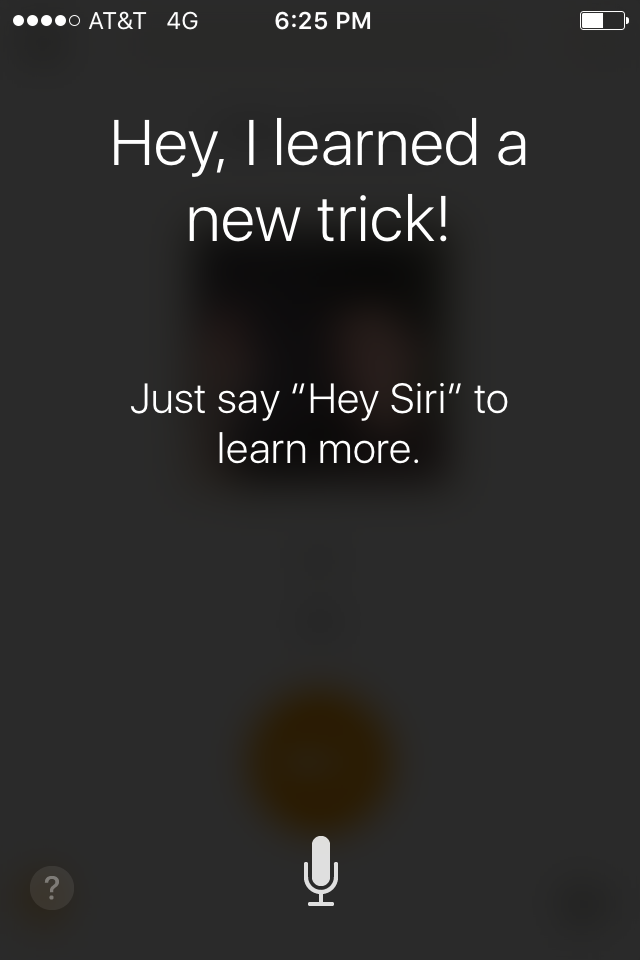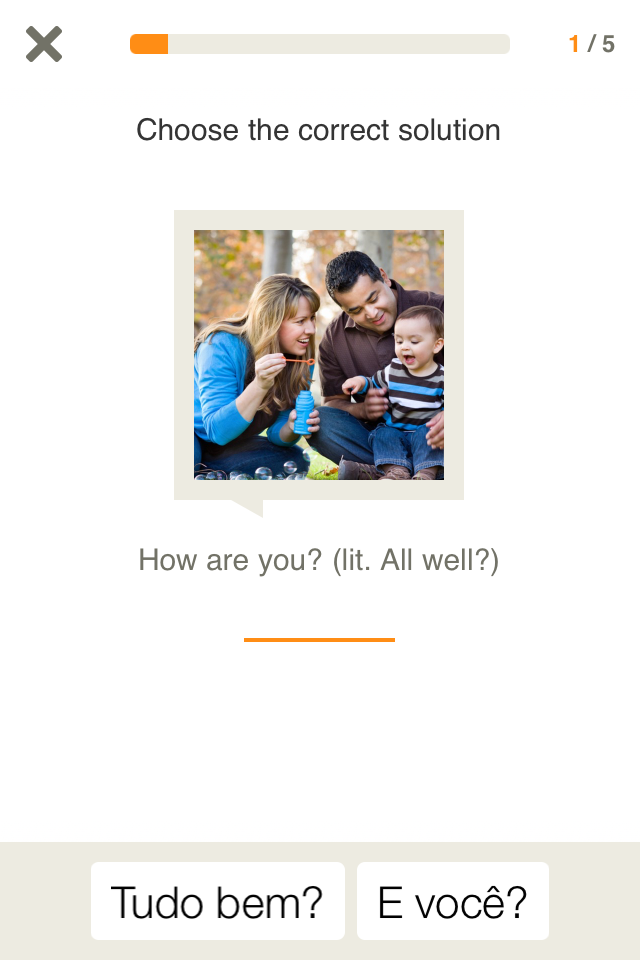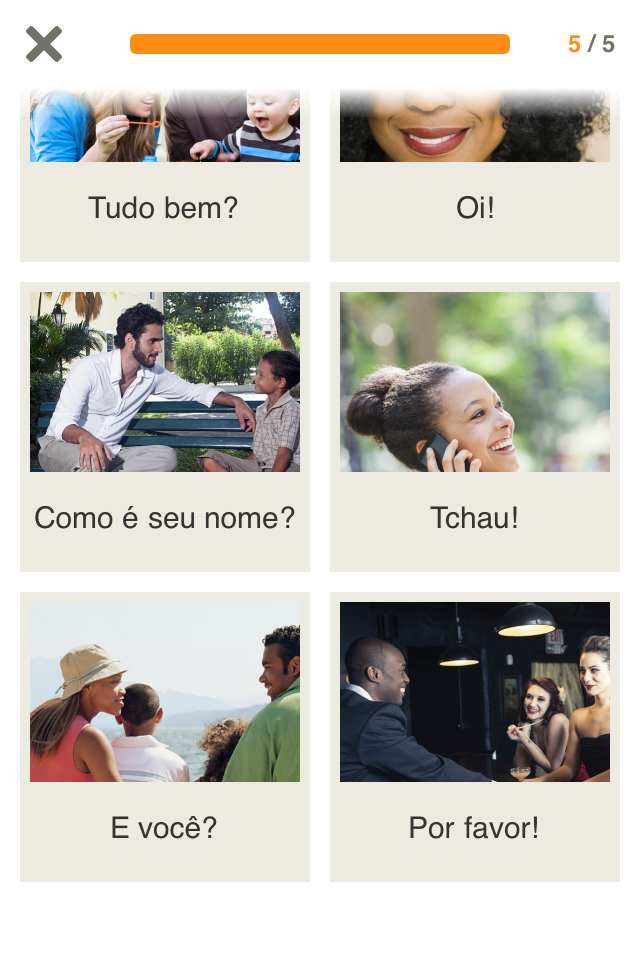Babbel

About: "Babbel is an online language learning software and e-learning platform available in various languages since January 2008. Thirteen languages are currently offered: Dutch, Danish, English, French, German, Indonesian, Italian, Norwegian, Polish, Portuguese, Russian, Swedish, Spanish and Turkish. According to babbel.com, it has over 20,000,000 users from more than 190 countries" (from: https://en.wikipedia.org/wiki/Babbel)
App Analysis (iOS v. 5.3.1)
Screen-shots of the initial screens of the app
Learning
In spite of Babbel's claim to have 'reinvented language learning', this App is not very innovative. It consists of a series of translation-based exercise prompts, meaning that the bulk of the learner's work is made of tapping on buttons. The animation after each click/tap delays the learning experience and increases the extrinsic cognitive load. Besides that, there is no clear content structure, and sometimes Babbel even prompts users to translate content that has not been introduced yet.
-
 Speaking:
Babbel deliberately asks learners to speak aloud, but only occasionally.
Speaking:
Babbel deliberately asks learners to speak aloud, but only occasionally.
-
 Content:
Words and expressions that do not seem to be structured on any logical category.
Content:
Words and expressions that do not seem to be structured on any logical category.
-
 Estimated duration:
The first lesson covers a very reduced amount of words and expressions (only 'Oi', 'Tchau', 'Qual é o seu nome?', and 'Tudo bem?', meaning 'Hi', 'Bye', 'What's your name?', and 'How are you?'). Acquiring fluency could take up to years if learners rely only on Babbel.
Estimated duration:
The first lesson covers a very reduced amount of words and expressions (only 'Oi', 'Tchau', 'Qual é o seu nome?', and 'Tudo bem?', meaning 'Hi', 'Bye', 'What's your name?', and 'How are you?'). Acquiring fluency could take up to years if learners rely only on Babbel.
-
 Relevance:
Words and expressions that are relevant for a beginner Portuguese learner.
Relevance:
Words and expressions that are relevant for a beginner Portuguese learner.
-
 Focus:
Actions take too long to complete due to animation delays, which reduce focus.
Focus:
Actions take too long to complete due to animation delays, which reduce focus.
-
 Right:
Learners can only advance in the lesson after choosing a correct answer, which triggers Babbel to add a green border to the right answer box and speak the content that is inside it.
Right:
Learners can only advance in the lesson after choosing a correct answer, which triggers Babbel to add a green border to the right answer box and speak the content that is inside it.
-
 Wrong:
Babbel does not punish learners for wrong answers, it simply does not advance in the lesson.
Wrong:
Babbel does not punish learners for wrong answers, it simply does not advance in the lesson.
-
 Challenge:
With easy and repetitive questions that slowly follow each other, it is not challenging.
Challenge:
With easy and repetitive questions that slowly follow each other, it is not challenging.
-
 Metacognition:
It does not explain its method, or give users choices to shape their learning path.
Metacognition:
It does not explain its method, or give users choices to shape their learning path.
Self-Efficacy tools
-
 Beginner?:
Users can choose between two levels of proficiency before starting to take courses.
Beginner?:
Users can choose between two levels of proficiency before starting to take courses.
-
 Counters:
It provides a quantified overview of the learner's performance in each lesson.
Counters:
It provides a quantified overview of the learner's performance in each lesson.
-
 Beginner's Course Structure:
It consists of 23 lessons that have different titles and purposes.
Beginner's Course Structure:
It consists of 23 lessons that have different titles and purposes.
-
 Review manager:
Babbel keeps track of content that the learner may need to review.
Review manager:
Babbel keeps track of content that the learner may need to review.
Usability
Audio output
Audio is usually only played after the user chooses the correct answer to the matching exercise.
-
 Bad recording settings:
Sometimes audio was clearly recorded without a pop filter.
Bad recording settings:
Sometimes audio was clearly recorded without a pop filter.
-
 Accents:
I was able to identify non-native Portuguese speaker accents a few times.
Accents:
I was able to identify non-native Portuguese speaker accents a few times.
Speech recognition
Speech recognition is a complex feature that is to produce errors and slow down the pace of the whole learning experience. On the other hand, it can enrich the responsiveness and cleverness of an App, if working correctly and seamlessly. In Babbel's case, only the errors and slowness resulted from it.
-
 Errors:
I could not make the app recognize my speech, with or without earphones with buil-in mic.
Errors:
I could not make the app recognize my speech, with or without earphones with buil-in mic.
-
 Siri:
After a few failed attempts, even Siri popped up, which slowed it all down even more.
Siri:
After a few failed attempts, even Siri popped up, which slowed it all down even more.
-
 Continue without speech recognition:
This feature may be essential, since the speech recognition feature will mostly likely break, making it impossible to advance in the course with it active.
Continue without speech recognition:
This feature may be essential, since the speech recognition feature will mostly likely break, making it impossible to advance in the course with it active.
Keyboard input
The exercises in Babbel are only based on matching and tapping, so there is no keyboard input.
Other features
Literal translation: The literal translation of a few expressions is sometimes displayed.
Meaningless pictures: Increase extrinsic cognitive load and do not help learners in any way.
Conclusions
In summary, Babbel feels very slow. It is hard to remain concentrated when the words/sentences repeat to exhaustion and each question is followed by an animated transition. Just like most language learning apps, Babbel trains users on the tapping of buttons that choose appropriate translations for the words in their target language, rather than on concrete linguistic skills. Finally, its speech recognition feature is not reliable and is likely to result in a frustrating experience.




